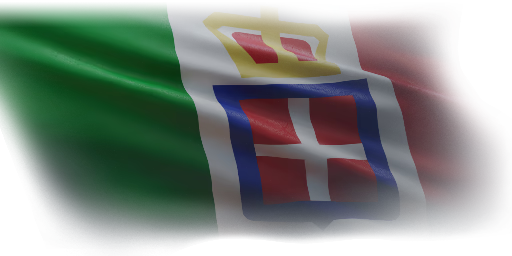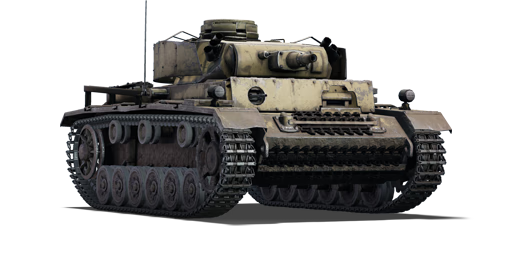




During the advance of the Allies on Italian territory in 1943, Germany began to send different types of vehicles to Italy (RSI) to increase their effectiveness and in turn improve the defence of the territory, including aircraft, light vehicles, transport vehicles, cannons, and eventually tanks. In particular, Pz.IV G, Pz.III N, and eventually StuG III G were sent, and these would be used in the 1st Armoured Division Black Shirts "M" formed in the same year and was divided into three companies, the second of which had 12 Pz.III N, with a particular difference, the removal of the side skirts. The Italian Pz.III N would not see combat as the division was still in training, and were eventually recovered by the Germans only to be captured by the Allies during the advance towards Germany.
Introduced in Update "Ixwa Strike", the Italian Pz.III N is practically the same as the German one but with the side skirts removed, so you will be a little less covered on the sides. The cannon penetrates up to 100 mm maximum with the HEAT, so it is sensible to try to aim for weak points of the enemy tanks. It is also devoid of the machine gun on the commander's cupola which is present in the German Pz.III N.
| Ammunition | Type | Armor penetration (mm) at a distance: | |||||
|---|---|---|---|---|---|---|---|
| 10 m | 100 m | 500 m | 1000 m | 1500 m | 2000 m | ||
| APCBC | 52 | 51 | 45 | 39 | 34 | 30 | |
| HE | 10 | 10 | 10 | 10 | 10 | 10 | |
| HEAT | 80 | 80 | 80 | 80 | 80 | 80 | |
| HEAT | 115 | 115 | 115 | 115 | 115 | 115 | |
| Smoke | 3 | 3 | 3 | 3 | 3 | 3 | |
| Belt | Belt filling | Armor penetration (mm) at a distance: | |||||
|---|---|---|---|---|---|---|---|
| 10 m | 100 m | 500 m | 1000 m | 1500 m | 2000 m | ||
| AP/AP/AP-T | 13 | 12 | 7 | 3 | 2 | 0 | |












Mobility | |
|---|---|
Protection |
|---|
Firepower | ||
|---|---|---|